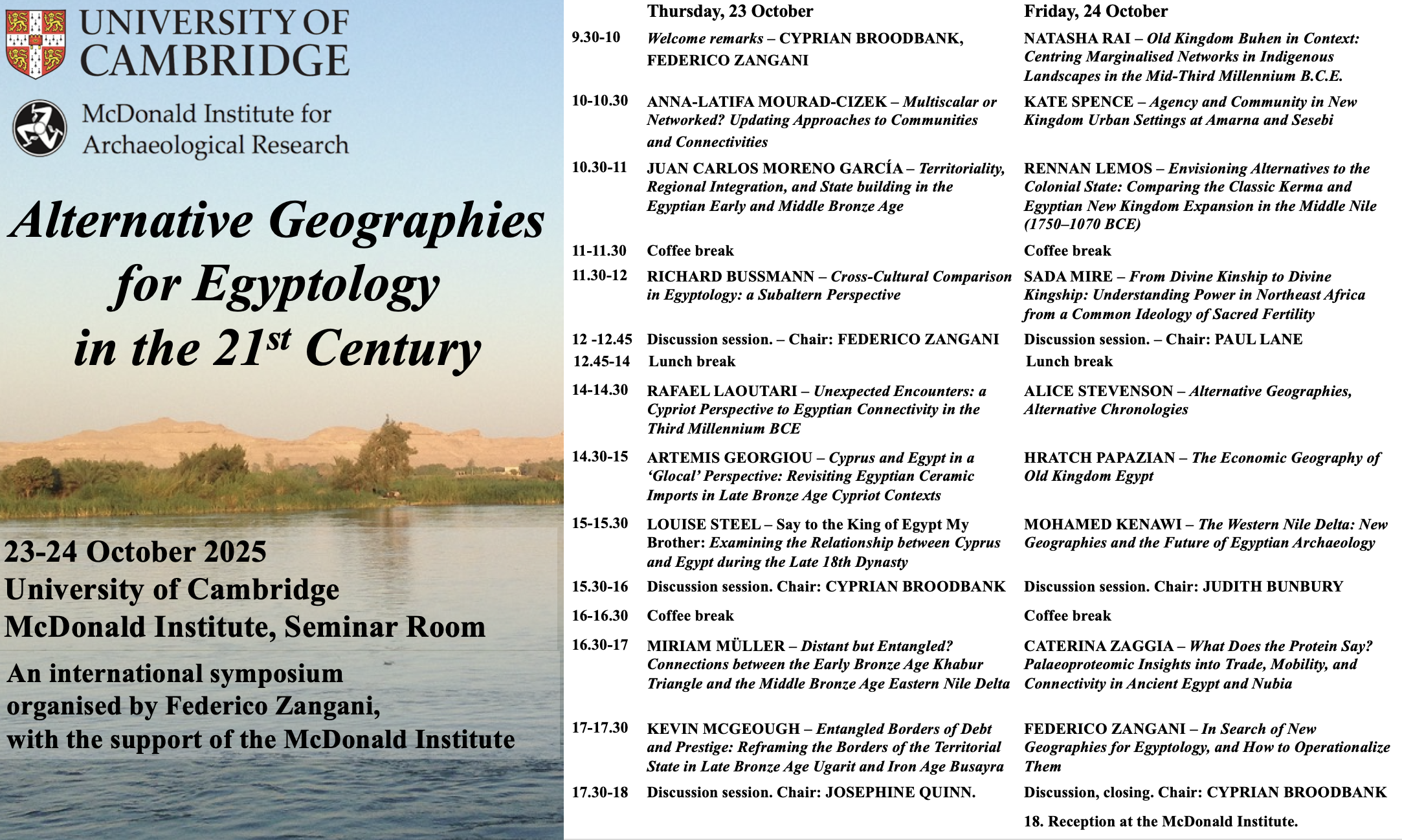

This conference addresses the need for new and alternative geographies in Egyptology, with a view to questioning how we understand ancient Egypt internally, relationally, and theoretically. The conception of Egypt as a homogenous, territorial nation-state is not only a modern distortion due to the Eurocentric development of Egyptology, but also the deliberate product of the ancient Egyptian worldview, elite culture, and royal ideology. Alternative geographies are therefore needed in order to achieve a more realistic understanding of ancient Egypt in its complexity and diversity, and Global History may outline three possible avenues for their definition and implementation. The first, within Egypt, is the analysis of localities, the agency of citizens at the local level, and the networks that localities and citizens formed: this should dismantle the unrealistic notion of the homogeneity of Egypt as a centralized state under the control of the pharaonic monarchy. The second avenue of research is connectivity: the ancient Egyptian civilization should be reappraised not as a unique and exceptional phenomenon, but as the product of its global interconnectedness across Africa, the Near East, and the Mediterranean, in a “glocal” perspective. Finally, the third avenue consists of comparative and theoretical research across temporal, spatial, and disciplinary boundaries, regardless of direct connections, which should challenge Egyptological knowledge against place-specific situations across the entire spectrum of world history and human experience. Such geographies should transcend the pre-established physical and conceptual boundaries of Egypt and enlarge the scope for Egyptological research, so as to explain the concatenation of very specific, local situations with large-scale, global phenomena. This conference will gather specialists of ancient Egypt, Africa, the Near East, and the Mediterranean, whose work investigates people, places, and the global networks of political and economic power of which pharaonic Egypt was but one component. The conference is also expected to generate comparanda that may outline additional avenues towards these alternative geographies by engaging with a wide range of data, theories, and methodologies across world history.
The conference will take place in the seminar room of the McDonald Institute on 23-24 October. Attendance is free (up to full room capacity), but registration is required. If interested, please email Dr Federico Zangani by Monday, 13th October, specifying your dietary requirements.
You can find the full programme & abstract available here for reference


